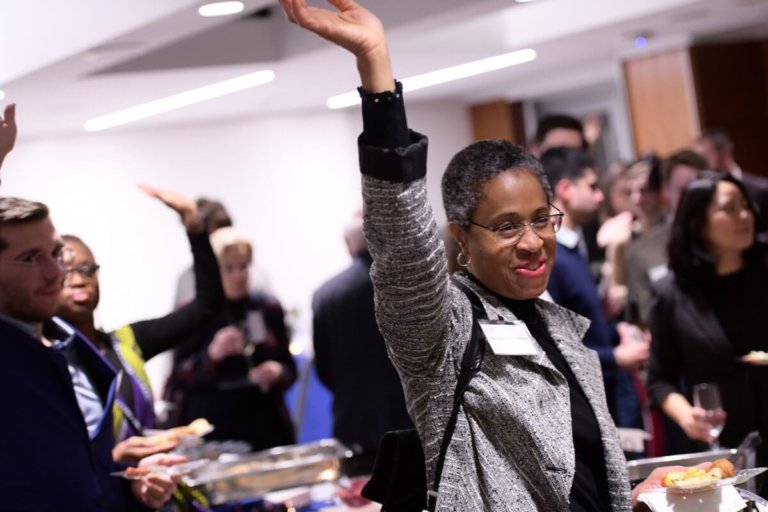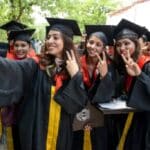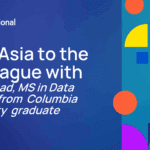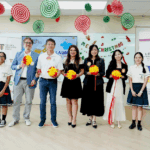
Public policy impacts just about every facet of modern life – from a country’s sustainable development macro goals right down to an individual’s access to education and healthcare.
One US school at the unique intersection of education, research and service in this area is George Washington University’s Trachtenberg School of Public Policy and Public Administration.
The School offers several postgraduates programmes in the field, including the Master of Public Administration (MPA), Master of Public Policy (MPP), Master of Arts in Environmental Resource Policy and PhD in Public Policy & Administration.
These are highly-ranked programmes, according to the US News & World Report’s 2019 rankings of best public affairs programmes in the country. All top journals in the field include their faculty as editors or authors. In terms of employability, the School boasts an impressive statistic – 95 percent of the School’s 2019 graduates were employed in their field within six months of graduation. Many graduates are now working at respected establishments, including the World Bank, IDC, Frost & Sullivan, Deloitte and Accenture, to name a few.
Two alumni tell us more about their extraordinary journeys since graduating and the School that made it all possible.
Daniela Chacón Arias – Master of Public Administration 2011
Daniela came to the School with an impressive resume under her belt.
A former Chief of Staff for the Constitutional Affairs Committee at the Ecuadorian National Congress, she joined the School’s MPA programme under a Fulbright scholarship.
Despite ample experience in law, business and politics, Arias still found the MPA’s practical curriculum highly useful. At GWU, she learned how to manage projects, administer resources and implement policies.

GW
“As a student of the School, I also took advantage of the fact that students could take classes from other schools at GW and also within the consortium of DC colleges and universities to complement the technical public administration education they were getting,” she said.
Since graduating, Daniela has taken her career to even greater heights.
From 2014 to 2019, she was the vice mayor and city council member for Quito, Ecuador’s capital city. Later, she became the executive director of TANDEM Foundation, a non-profit organisation that advises public institutions, private organisations and community organisations to promote local development and achieve safe, inclusive, sustainable and resilient cities. She also teaches at the Universidad de Las Américas’ International Relations and Political Sciences School.
She is grateful for the many opportunities the School offered her.
Being in the US capital meant there were many opportunities to get hands-on experience at the international and national organisations located there. A dedicated career services team was always on hand to help students update resumes, write cover letters and develop professional skills.
One faculty member Joan Dudik-Gayoso also made her, an international student, feel welcome on campus and overcome her language barrier.
“She was a very special faculty member to me not only in professional development, but also the personal and emotional development that you need to accompany a Master’s programme, especially if you’re coming from another country (or even another state in the US),” Daniela said.
Elisabeth Farmer – Master of Public Policy 2012
As the Chief of Party for Livelihoods for Resilience Activity (CARE) – an international non-governmental organisation focused on women empowerment, food security and livelihoods – Elisabeth said many of the courses she took during her MPP programme have proved invaluable in her line of work.
The 2012 MPP graduate is currently based in Ethiopia, and recalled that courses such as social and welfare policy, in addition to economics, have helped her understand the US and European social protection policies along with its challenges, among other things.
“Understanding how this works in a Western context gave me a good foundation for working on the Government of Ethiopia’s Productive Safety Net Programme, which faces some similar challenges,” said Elisabeth. The programme is one of the largest social protection programmes in Africa.
“The economics course has also provided me with a solid foundation as our project is essentially trying to help people develop viable small businesses. The sound understanding that I developed around supply, demand, price, utility, and other concepts has served as a good base of knowledge for the business aspect of what we do.”

GW
Farmer’s advice to incoming students? Enrol in courses in different fields to stretch your capabilities as you’ll never know how it can impact your work upon graduating.
“I took a negotiation course in the business school. A few months later, I negotiated a salary offer for the first time ever. I’d had salary offers before, but had never negotiated one. I ended up with US$5,000 more per year and five extra vacation days!,” she shared.
If you’re interested in following in their illustrious footsteps, apply to the School today.
Follow GWU’s Trachtenberg School on Facebook and Twitter
Liked this? Then you’ll love…
Meet the changemakers of public policy in Australia
The future policy experts from these universities will save the world







